Main Content

The future of work?
When we think of the future of work, the tendency is to think of the shifting shape and nature of the workplace.
Things are changing fast in that respect, not only driven by technological advancement and the well-documented aspirations of millennials, but also by a more universal expectation across all ages of workers. An expectation to have more flexibility, more control over the way we work, where we do it and when.
Within the design industry there are some fantastic examples of businesses leading the way in this area. DBA member ELSE being one such trailblazer; a consultancy which has switched to a four-day week, with no reduction in pay or benefits for their team.
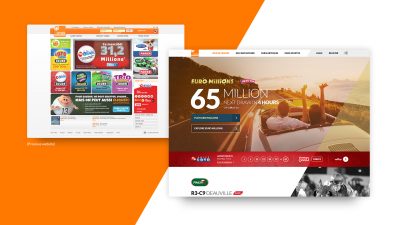
What motivated the experience design consultancy to make the change in autumn 2018 and switch from a 40 to 32 hour working week?
“It was in pursuit of an optimum creative culture” says ELSE’s founder Warren Hutchinson, “one that respects people’s time and creates the conditions for focussed, purposeful work”. Hutchinson’s clear that it’s about attracting and retaining the best talent and creating a culture of effective working, “so we get to the state of ‘on-ness’ that we all enjoy” he adds.
The ‘9 in 10’ model adopted by ELSE has also been designed to encourage better learning and development, with the team working regular hours Monday to Thursday, then every other Friday taking a home R&D day. “It stands to reason that the culture of any design consultancy should create meaningful breathing space for learning, exploration, research and development, because we get hired for the expertise, creativity and perspective we bring,” says Hutchinson. “But when you are busy, most of the learning occurs through the work that you do, and if you’re not careful, your collective knowledge becomes defined by the work you’re asked to do. Arguably it should be the other way around,” he adds.
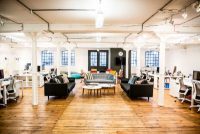
It’s an evolving experiment to see whether they could do in four days what they normally do in five and the consultancy has been exploring initiatives such as working in pomodoros, using MVA lists (minimum valuable action), switching around the physical environment so there are areas for sketching and reading for instance, all to improve the effectiveness of the team across that shortened week.
Is it working out how they’d planned? “We won’t be going back”, offers Hutchinson. “Our staff satisfaction rates are great, we all have proper weekends, and four-day weeks attract top talent. But it hasn’t been easy for everyone, some people have found it harder than others to switch.”
With client reactions predominantly very positive at ELSE, this model offers much to challenge the parameters around the shape of work. But what of the ‘how’ we work as well; our approach to project teams?
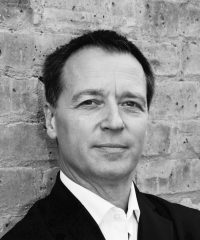
Traditionally agencies have tended to follow a familiar format. “In my early days in the creative industries when a new client was won and a project team assembled, the construction of the team was very predictable”, says consultant, DBA Expert and leading authority on brand transformation, Ralph Ardill. “There was an account manager, account director, creative director, design director, studio manager, a planner maybe…. the contribution of each team member was very fixed to within pretty much what it said on their business card.”
However, Ardill believes that predictable team structures and project methodologies have run their course and that the design of teams and the design of methodology is increasingly going to be where agencies and clients get ahead and gain an advantage.
“Clients want to sense an energy and a possibility in the talent that they’re working with and sometimes – with traditional team structures – that can be eroded out of the process because it’s the same people doing the same job, in the same way over and over again”, he argues, adding that huge opportunities to create more value are being missed because “we’re not challenging conventions”.
Ardill sees a future need in agencies for a highly effective ‘producer’ role – much like in the movies – to cast, orchestrate and deploy the right mix of talent drawn from both an internal and external network. They will cast talent not in terms of linear disciplines, but in terms of understanding the breadth of competencies and relevant experiences the individuals can bring to a project, and how the right mix of different personalities and characters will create a frisson – a spark – that will deliver greater value both in the experience of all those involved and in the end outcome.
“You won’t see people in linear functions anymore,” says Ardill. “You may be a graphic designer by training and that might be what it says on your business card, but it might be that for a particular project you are cast as a visual researcher or ethnographer”, he says.
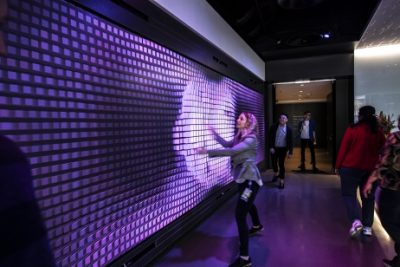
It’s something experiential specialists 2LK are beginning to witness in their business. “One of the things we find is designers are not looking to be type cast into any particular discipline anymore,” says 2LK’s Creative Director Andy Sexton. “We’re getting these fantastic young designers that just call themselves a designer. They’ve got a toolbox of skills that might mix from digital, to physical, to graphic design and it’s actually gradually starting to change the way we operate as a studio,” adds Sexton, highlighting that within his team colleagues are actively encouraged to cross boundaries and influence work outside of a predictable sphere.
2LK count Intel, HSBC and Canon amongst their long-time clients and believe the strength of those relationships is helped by the agency’s open attitude to freshening things up by bringing in different artists and other designers on projects; introducing them to clients without white labelling them.
“What you have to do is stay aware and divergent in the way that you access specialist talent”, says Sexton. “And because we are confident in the strength of our client relationships and what we can – and do – deliver for them, we believe there’s no need to hide what we can’t do. Being honest in this way creates a really strong sense of spirit and the richness of our collaborations is something our clients really value, both in terms of the quality of work produced and the new relationships it opens up for them.”
If it’s time to change up our thinking around project teams, when’s the best time to have that conversation? “There’s a pivotal moment” Ardill says, “when a team comes together.” That point, right at the beginning, “the pause before everyone dives in and reverts to type.”
“That’s the moment to challenge conventions. To think ‘what’s the best team we could be? And what’s the best way we could be as a team?’ To spend some time on that before anyone gets anywhere near the brief.”
“There should be a new stage in the process” concludes Ardill, “’Stage Zero’ – the design of how things become, which is the prelude to the design of what things are”.
In-house training
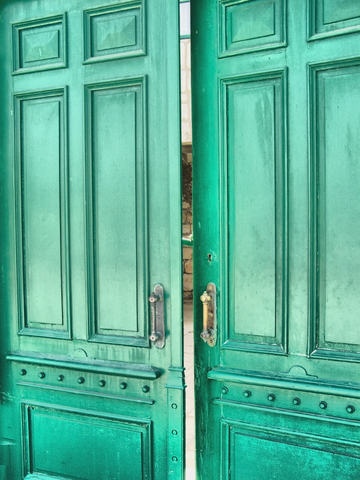
Bring our leading design industry specific workshops to your office. You can save on travel costs, time and course fees when our expert trainers come to you and your team. A wide range of DBA workshops are available to be delivered in-house and they can be tailored to suit the specific needs of your team and your business.
Benefits of in-house training:
– Enjoy the flexibility and convenience of bringing our highly regarded training courses to you.
– Provide a learning experience for your team which is specific to your organisation and to the needs of your business.
– Reduce time out of the office and bring the trainer to your business.
– Take advantage of our in-house training discounts to save money.
– Choose from our standard courses, or chat to us about tailoring a course to your needs or creating a bespoke course.
Contact us to discuss the options available on 020 7251 9229 or email bookings@dba.org.uk.
Image credits:
Annie Spratt | Unsplash
Office photography & DBA Design Effectiveness Awards 2019 entry | ELSE
Ralph Ardill
DBA Design Effectiveness Awards 2019 entry | 2LK